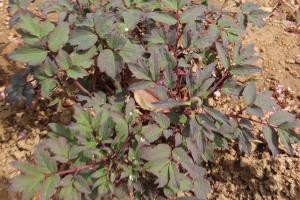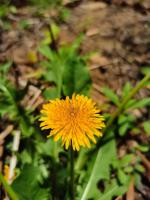Is Human Manure Good for Plants?
Human waste, also known as human manure, is organic material created by the human body. While human manure is typically disposed of as waste, some people believe that it can be used as a valuable fertilizer for plants. In this article, we'll explore the benefits and potential risks of using human manure as a plant fertilizer.
The Benefits of Using Human Manure
There are several benefits to using human manure as a fertilizer for plants. One of the primary benefits is that it is a rich source of essential nutrients, such as nitrogen, phosphorus, and potassium. These nutrients are essential for plant growth and development, and using human manure as a fertilizer can help ensure that plants have these nutrients in abundance.
Another benefit of using human manure is that it is a renewable resource. Human waste is generated on a daily basis, and using it as a fertilizer can help reduce the amount of waste that ends up in landfills. This can help promote more sustainable practices and reduce the environmental impact of waste disposal.
The Risks of Using Human Manure
While there are some benefits to using human manure as a plant fertilizer, there are also some potential risks that need to be considered. One of the main concerns is the potential presence of pathogens and other contaminants in the waste. Human waste can contain harmful bacteria and viruses, such as E.coli and Salmonella, which can pose a risk to human health if not properly treated.
Another concern is the potential for the waste to contain other contaminants, such as heavy metals or pharmaceuticals. These contaminants can accumulate in the soil over time and pose a risk to both plant and human health. It is important to ensure that the human manure used as fertilizer has been properly treated and tested to ensure that it is free from harmful contaminants.
The Best Practices for Using Human Manure as Fertilizer
If you are considering using human manure as a fertilizer for your plants, it is important to follow best practices to ensure that it is safe and effective. Some key steps to follow include:
Make sure the waste has been properly treated to eliminate pathogens
Test the waste for contaminants, such as heavy metals or pharmaceuticals
Avoid using raw human waste on edible plants
Apply the fertilizer in small quantities to avoid over-fertilization
Combine the human waste with other organic matter, such as compost, to improve nutrient balance
Conclusion
While human manure can be a valuable source of nutrients for plants, there are also potential risks that need to be carefully considered. By following best practices and taking precautions to ensure that the waste is properly treated and tested, it is possible to use human manure as a fertilizer safely and effectively. However, it is important to remember that not all waste is created equal, and it may be best to consult a professional before using human waste as a fertilizer.

 how many times do yo...
how many times do yo... how many planted tre...
how many planted tre... how many pine trees ...
how many pine trees ... how many pecan trees...
how many pecan trees... how many plants comp...
how many plants comp... how many plants can ...
how many plants can ... how many plants and ...
how many plants and ... how many pepper plan...
how many pepper plan...





























